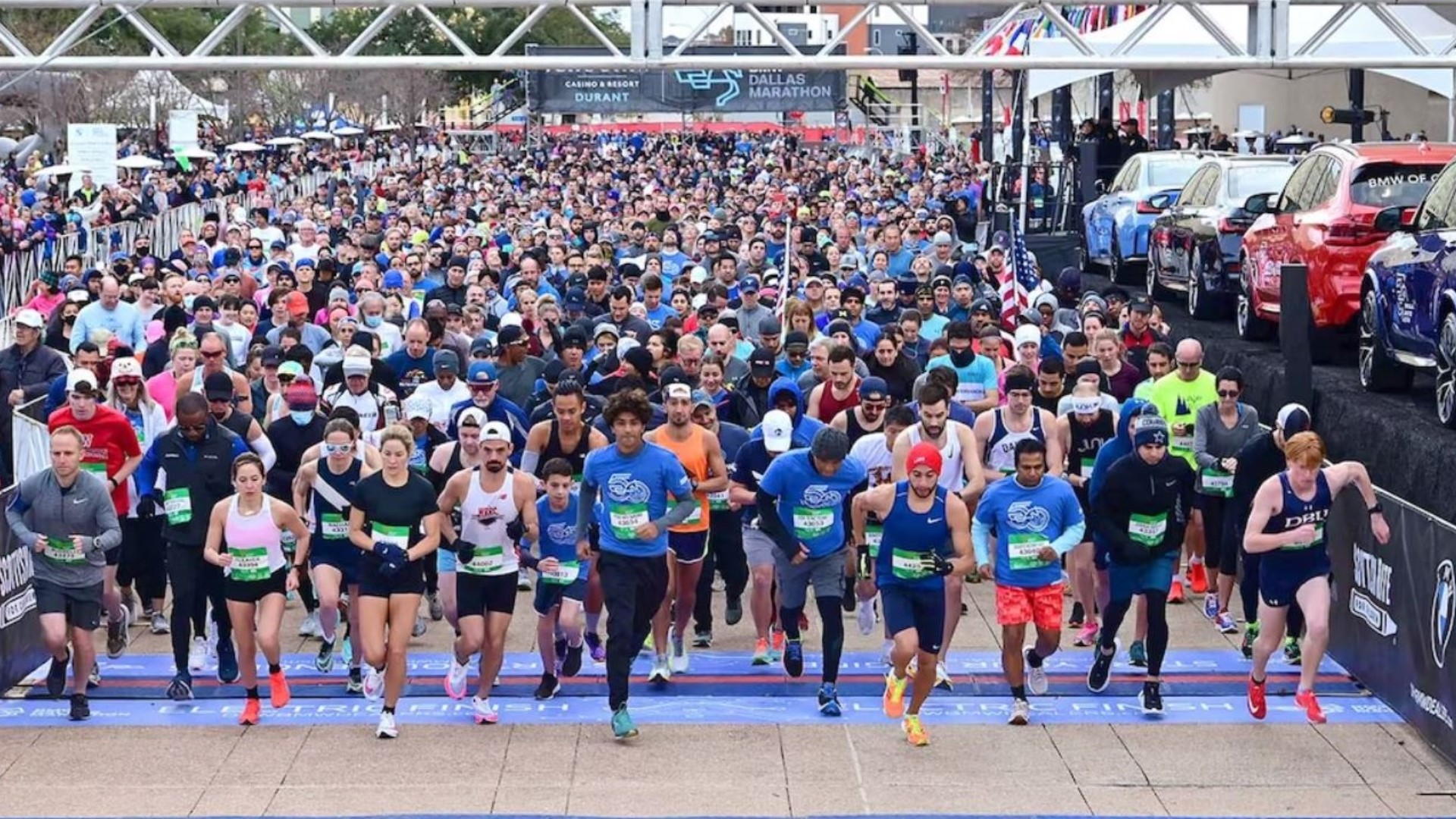DALLAS — The 53rd Annual Dallas Marathon kicks off this weekend with a few wrinkles in the forecast.
There are rain chances, warmer temperatures than average for this time of year, and the humidity to show for it. But what does that mean for the more than 30,000 expected who have trained for months for this moment?
WFAA talked to Dr. Alan Jones, an orthopedic surgeon at Baylor University Medical Center, who explained, “The optimum times for our temperatures for a marathon are actually a little bit cooler in the, in the 40s or low 50s at the most. Some of that is because when you're running, you generate a lot of heat, and the warmer it gets, the more energy your body has to spend just keeping you cool.”
Dr. Jones knows the Dallas Marathon well. In fact, he’s run it so many times he’s lost count and is participating again this year.
“The fastest way to get it over is to keep going and go faster,” he laughed.
For new runners like Juan Rodriguez, the only thing he fears is, “Agony of defeat. That’s the name of our team.” Explaining, “Not only our feet but, defeat.” Rodriguez is taking part in the marathon relay with a team he built at work.
Natasha Sood is running the Dallas Half Marathon, a mark in her training for the London Marathon in 2025. For her mantra, “I just tell myself one foot in front of the other. That's all I've got to keep doing.”
When it comes to possible rain, Rodriguez shared, “We saw that there was a chance of rain so we’re kind of prepared for that.” Sood confessed that she, “Got nothing prepared for the rain. I actually just bought this rain jacket, but I don't think I'm going to wear it because they say nothing new on race day.”
Dr. Jones told WFAA, “When you're running, you generate a lot of heat, and the warmer it gets, the more energy your body has to spend just keeping you cool. You may want to stop a little more frequently, or maybe a little bit sooner in the race than you typically would.”
We also talked to Dr. Stephen Mathew with Baylor Scott & White Sports Medicine and Orthopedic Institute. His tips for a strong race day, despite the weather, include:
- eating plenty of carbohydrates and hydrating the night before
- watching the road so you don’t slip
- avoiding puddles because wet socks and shoes can cause blisters on your feet
- consider disposable rain gear so you can toss it during the race when needed
- enjoying the experience after months of training
“There's so many people around you to support you. They carry you along, um, just enjoy it and have a great time, Dr. Jones said. Adding, if you get into any trouble, “Our hospitals about… it's real near close to the very end of the race. It's in the mile after mile 22 or something like that. So if you need us, we're here to, we're here to help.”

